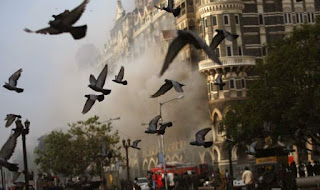Monthly Archives: April 2016
The continuous crisis of the Muslim Brotherhood
How to counter Sectarianism
Follow the money

Al Serraj nuovo Premier di unità nazionale libica ha capito subito che per gestire pienamente la transizione verso politiche condivise tra tutte le fazioni presenti deve entrare immediatamente in possesso del patrimonio di Gheddafi congelato in asset esteri dalle sanzioni Onu del 2011, sbloccando, inoltre, le leve finanziarie legate allo sfruttamento del petrolio e del gas.
“Segui i soldi” è oggi l’imperativo assoluto del Premier libico e la Coalizione internazionale è pronta a togliere le sanzioni per permettere a Serraj di diventare l’unico ufficiale pagatore ed il vero datore di lavoro riportando il paese alla normalità con gli stipendi istituzionali regolarmente pagati. La Libyan Investment Authority ( LIA ) con i suoi 85 miliardi di dollari di patrimonio, la National Oil Company ( NOC ) e la Banca centrale rappresentano il tesoro del vecchio Dittatore ed ora possono entrare nella disponibilità del nuovo corso libico per dare la stabilità ad un paese ancora diviso e non pacificato. La battaglia da vincere in questa fase è tutta economica e non militare ripristinato il circolo di denaro che determina il Pil libico anche gli altri contendenti Khalifa Ghwen, Nouri Abu Sahimin e Aguila Saleh troveranno la giusta collocazione nelle future dinamiche di gestione libiche.
Sul fronte terroristico la situazione è di stallo il califfato ha provato senza successo a prendere possesso di alcuni terminali petroliferi per finanziarsi attraverso il contrabbando di greggio con Tunisia e Malta ma questo tipo di traffico risulta oggi estremamente difficile per i frequenti controlli delle forze militari occidentali. La partita, quindi, anche sul fronte Isis si gioca esclusivamente sul piano finanziario, la progressiva riduzione delle risorse economiche porterà ad un graduale arretramento dei terroristi sul territorio libico. La guerra sarà vinta dalla finanza, tutte le fazioni in lotta sono ,infatti, disposte ad andare verso la pacificazione se avranno un favorevole accordo economico
© RIPRODUZIONE RISERVATA
Follow the money

Al Serraj nuovo Premier di unità nazionale libica ha capito subito che per gestire pienamente la transizione verso politiche condivise tra tutte le fazioni presenti deve entrare immediatamente in possesso del patrimonio di Gheddafi congelato in asset esteri dalle sanzioni Onu del 2011, sbloccando, inoltre, le leve finanziarie legate allo sfruttamento del petrolio e del gas.
“Segui i soldi” è oggi l’imperativo assoluto del Premier libico e la Coalizione internazionale è pronta a togliere le sanzioni per permettere a Serraj di diventare l’unico ufficiale pagatore ed il vero datore di lavoro riportando il paese alla normalità con gli stipendi istituzionali regolarmente pagati. La Libyan Investment Authority ( LIA ) con i suoi 85 miliardi di dollari di patrimonio, la National Oil Company ( NOC ) e la Banca centrale rappresentano il tesoro del vecchio Dittatore ed ora possono entrare nella disponibilità del nuovo corso libico per dare la stabilità ad un paese ancora diviso e non pacificato. La battaglia da vincere in questa fase è tutta economica e non militare ripristinato il circolo di denaro che determina il Pil libico anche gli altri contendenti Khalifa Ghwen, Nouri Abu Sahimin e Aguila Saleh troveranno la giusta collocazione nelle future dinamiche di gestione libiche.
Sul fronte terroristico la situazione è di stallo il califfato ha provato senza successo a prendere possesso di alcuni terminali petroliferi per finanziarsi attraverso il contrabbando di greggio con Tunisia e Malta ma questo tipo di traffico risulta oggi estremamente difficile per i frequenti controlli delle forze militari occidentali. La partita, quindi, anche sul fronte Isis si gioca esclusivamente sul piano finanziario, la progressiva riduzione delle risorse economiche porterà ad un graduale arretramento dei terroristi sul territorio libico. La guerra sarà vinta dalla finanza, tutte le fazioni in lotta sono ,infatti, disposte ad andare verso la pacificazione se avranno un favorevole accordo economico
© RIPRODUZIONE RISERVATA
The new phase of fighting terrorism




